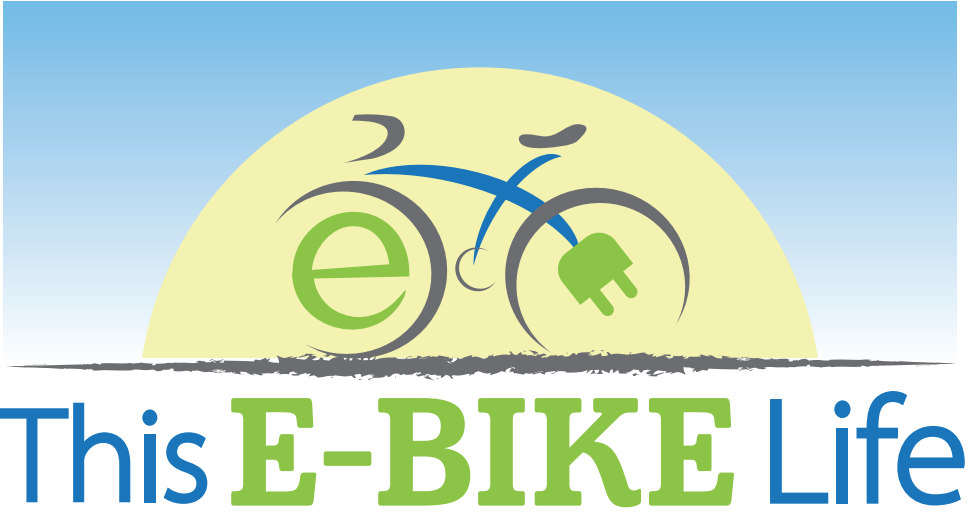 Albert Grant and Thresa Cathey Giles are avid cyclists who administer an active Facebook group titled Rails to Trails Reviews. The Jacksonville, Florida, couple has written reviews on more than 40 rail trails and has been profiled in the Rails-to-Trails Conservancy magazine. They credit cycling with making them healthier and happier, providing enjoyment and fulfillment. If you love to ride trails, I highly recommend joining Albert and Thresa’s Facebook group.
Albert Grant and Thresa Cathey Giles are avid cyclists who administer an active Facebook group titled Rails to Trails Reviews. The Jacksonville, Florida, couple has written reviews on more than 40 rail trails and has been profiled in the Rails-to-Trails Conservancy magazine. They credit cycling with making them healthier and happier, providing enjoyment and fulfillment. If you love to ride trails, I highly recommend joining Albert and Thresa’s Facebook group.
In a recent post on the Rails to Trails Review Facebook group, Albert wrote an excellent column about e-bikes, comparing their pros and cons to those of traditional bikes. It’s worth noting that Albert and Thresa haven’t yet made the switch to e-bikes, but Albert’s column is nevertheless very fair and objective. With his permission, I’m reprinting it in full below for my readers. It’s an excellent summary on the benefits of e-bikes and whether an e-bike or traditional bike is best for you. Thanks for sharing it, Albert.
Here’s the column:
The Emergence of E-Bikes: A New Era in Cycling
The world of cycling has seen a significant shift in recent years with the emergence of e-bikes. These electric-powered bicycles are quickly becoming a popular choice for many, as they offer a convenient, efficient, and eco-friendly way to get around. What’s driving this newfound interest in e-bikes and how do they compare to traditional bicycles? Let’s explore.
One of the main reasons people are turning to e-bikes is the added assistance they provide. The electric motor helps to ease the strain on the rider, making it an attractive option for those who might have been deterred from cycling due to injury, age, or fitness level. E-bikes empower individuals with physical limitations to continue enjoying the benefits of cycling.
Moreover, e-bikes have also gained popularity among commuters who want to avoid traffic and reduce their carbon footprint. The electric assist allows riders to cover longer distances with less effort, making it a viable alternative to driving or using public transportation.
E-bikes come with a host of benefits that cater to a wide range of cyclists. Some of the key advantages include:
(1) Reduced physical strain
(2) The electric motor provides assistance when needed, making it easier to tackle challenging terrains or to maintain a consistent pace on longer rides.
(3) Increased accessibility: E-bikes make cycling more accessible for people with physical limitations, enabling them to enjoy the numerous health and social benefits associated with the activity.
(4) Eco-friendly: E-bikes are powered by batteries, which produce zero emissions, making them an environmentally responsible choice for transportation.
(5) Economical: Riding an e-bike can help save on fuel costs, parking fees, and vehicle maintenance, making it a cost-effective means of transportation.
The Benefits of Traditional Bikes
While e-bikes offer many advantages, traditional bikes still have their unique benefits:
(1) Fitness: Riding a traditional bike provides an excellent form of cardiovascular exercise, helping to improve overall health and fitness.
(2) Simplicity: Traditional bikes have fewer components, making them easier to maintain and less prone to mechanical issues.
(3) Affordability: Traditional bikes are generally less expensive than e-bikes, making them a more budget-friendly option for those looking to get into cycling.
(4) Weight: Traditional bikes tend to weigh less than e-bikes, making them easier to maneuver and transport.
Both e-bikes and traditional bikes offer distinct benefits that cater to various needs and preferences. E-bikes are an excellent choice for those who require additional support due to health reasons or for those who wish to commute more efficiently. On the other hand, traditional bikes provide an affordable and reliable means of transportation while promoting physical fitness.
Ultimately, the choice between an e-bike and a traditional bike comes down to personal preferences and individual needs.
 Albert Grant and Thresa Cathey Giles are avid cyclists who administer an active Facebook group titled Rails to Trails Reviews. The Jacksonville, Florida, couple has written reviews on more than 40 rail trails and has been profiled in the Rails-to-Trails Conservancy magazine. They credit cycling with making them healthier and happier, providing enjoyment and fulfillment. If you love to ride trails, I highly recommend joining Albert and Thresa’s Facebook group.
Albert Grant and Thresa Cathey Giles are avid cyclists who administer an active Facebook group titled Rails to Trails Reviews. The Jacksonville, Florida, couple has written reviews on more than 40 rail trails and has been profiled in the Rails-to-Trails Conservancy magazine. They credit cycling with making them healthier and happier, providing enjoyment and fulfillment. If you love to ride trails, I highly recommend joining Albert and Thresa’s Facebook group.






